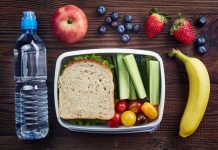While preparing your delicious holiday baked goods, be aware that eating or tasting unbaked products, such as dough or batter, can make you sick.
Raw cookie dough can contain bacteria – like salmonella and e. coli – that can cause foodborne illness. Follow important food safety principles to help everyone stay healthy when handling raw dough.
In fact, the FDA has issued warnings for people to not eat raw cookie dough, and other products with untreated flour, due to an E. coli risk and raw eggs from a salmonella risk.
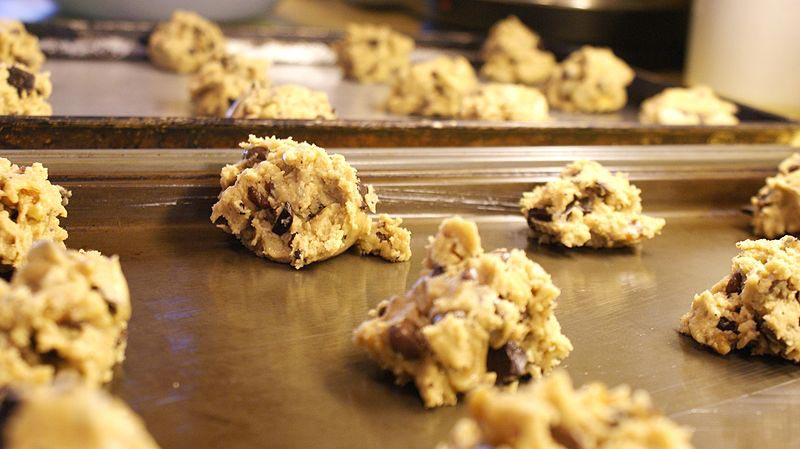


Illness Dangers from Flour
Flour is typically a raw agricultural product. This means it hasn’t been treated to kill germs like Escherichia coli (E. coli). Harmful germs can contaminate grain while it’s still in the field or at other steps as flour is produced. The bacteria are killed when food made with flour is cooked. This is why you should never taste or eat raw dough or batter—whether made from recalled flour or any other flour.
- Learn about proper hygiene, cross contamination, cold and hot food safety, foodborne pathogens, and best practices to prevent foodborne illness.
- Food Manager Training & ANSI Certification - $99.00
- Food Handler Training - only $7.00!
- HACCP Training: 16hr/4hr/1hr
- Food Allergy Training - $15.00
- Enter Promo "train10off" at Checkout
In 2016, an outbreak of E. coli infections linked to raw flour made 63 people sick. Flour products have long shelf lives and could be in people’s homes for a long time. If you have any recalled flour products in your home, throw them away.
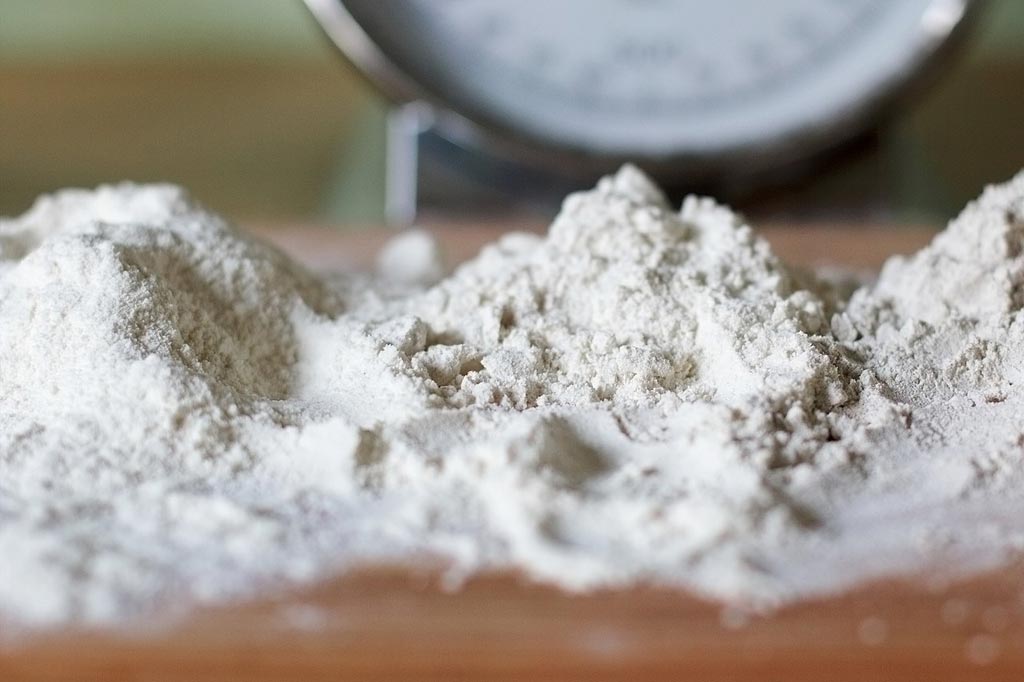


Illness Dangers from Eggs
In addition, raw eggs that are used to make raw dough or batter can contain Salmonella that can make you sick if the eggs are eaten raw or lightly cooked. Eggs are safe to eat when cooked and handled properly.
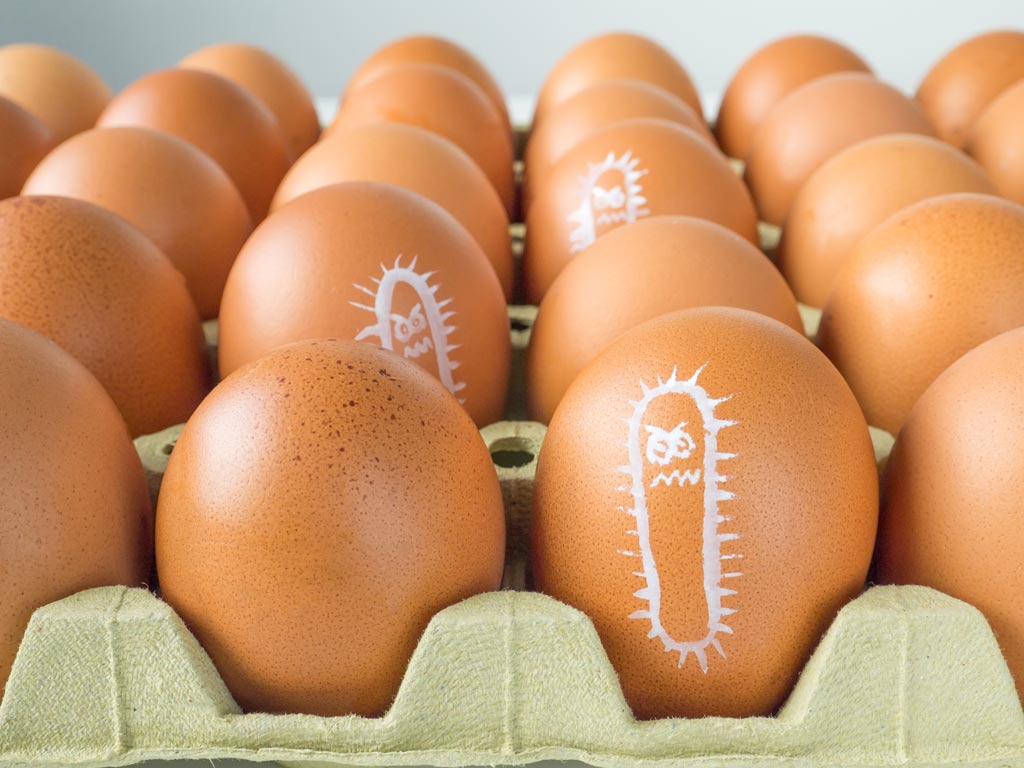


Follow Safe Food Handling Practices
- Do not taste or eat any raw dough or batter, whether for cookies, tortillas, pizza, biscuits, pancakes, or crafts made with raw flour, such as homemade play dough or holiday ornaments.
- Do not make milkshakes with products that contain raw flour, such as cake mix.
- Do not use raw, homemade cookie dough in ice cream.
- Cookie dough ice cream sold in stores contains dough that has been treated to kill harmful bacteria.
- Keep raw foods such as flour or eggs separate from ready-to eat-foods. Because flour is a powder, it can spread easily.
- Follow label directions to refrigerate products containing raw dough or eggs until they are cooked.
- Clean up thoroughly after handling flour, eggs, or raw dough:
- Wash your hands with running water and soap after handling flour, raw eggs, or any surfaces that they have touched.
- Wash bowls, utensils, countertops, and other surfaces with hot water and soap.



Food Illness Symptoms
E. coli – The symptoms of E. coli infections vary for each person but often include severe stomach cramps, diarrhea (often bloody), and vomiting.
People usually get sick 3 to 4 days after swallowing the germ. Most people recover within a week. However, some people develop a serious type of kidney failure called hemolytic uremic syndrome (HUS).
Salmonella – The symptoms of Salmonella infections typically appear 6 to 48 hours after eating a contaminated food, though this period is sometimes longer. Symptoms typically include diarrhea, fever, and abdominal cramps.
In most cases, illness lasts 4 to 7 days and people recover without antibiotics. Illness from Salmonella bacteria can be serious and is more dangerous for older adults, infants, and people with weakened immune systems.
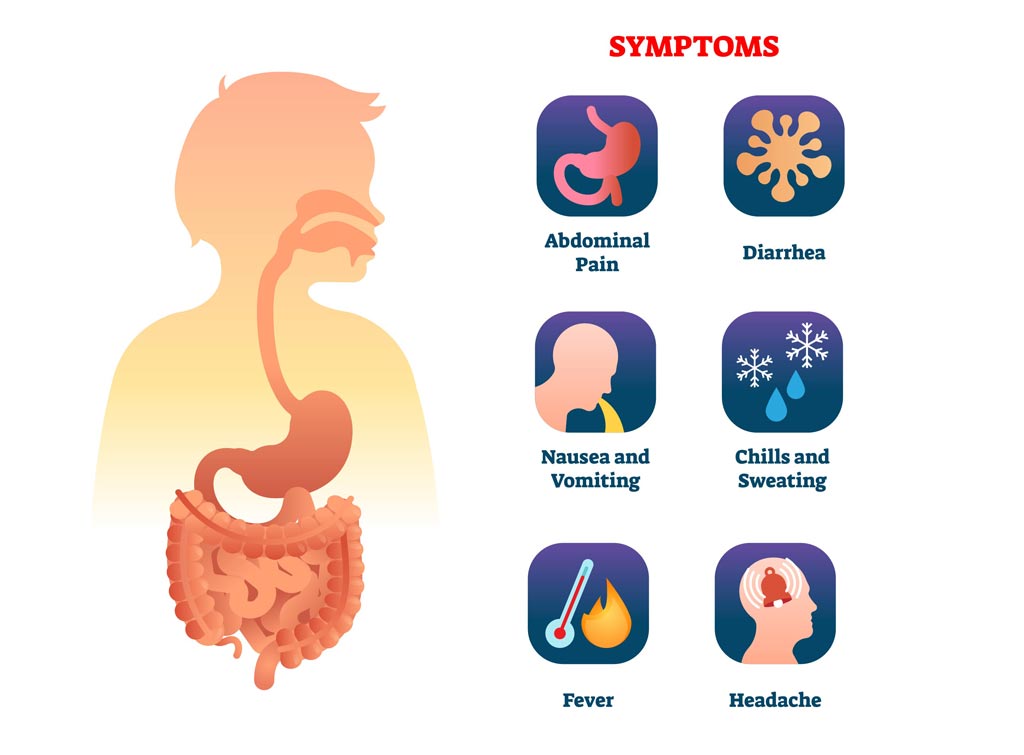


Additional Resources
- Shiga Toxin-Producing E. coli and Food Safety
- Salmonella and Eggs
- Multistate Outbreak of Shiga toxin-producing Escherichia coli Infections Linked to Flour
- Flour Recall and Advice to Consumers and Retailers
- FDA Consumer Update: Raw Dough’s a Raw Deal and Could Make You Sick





